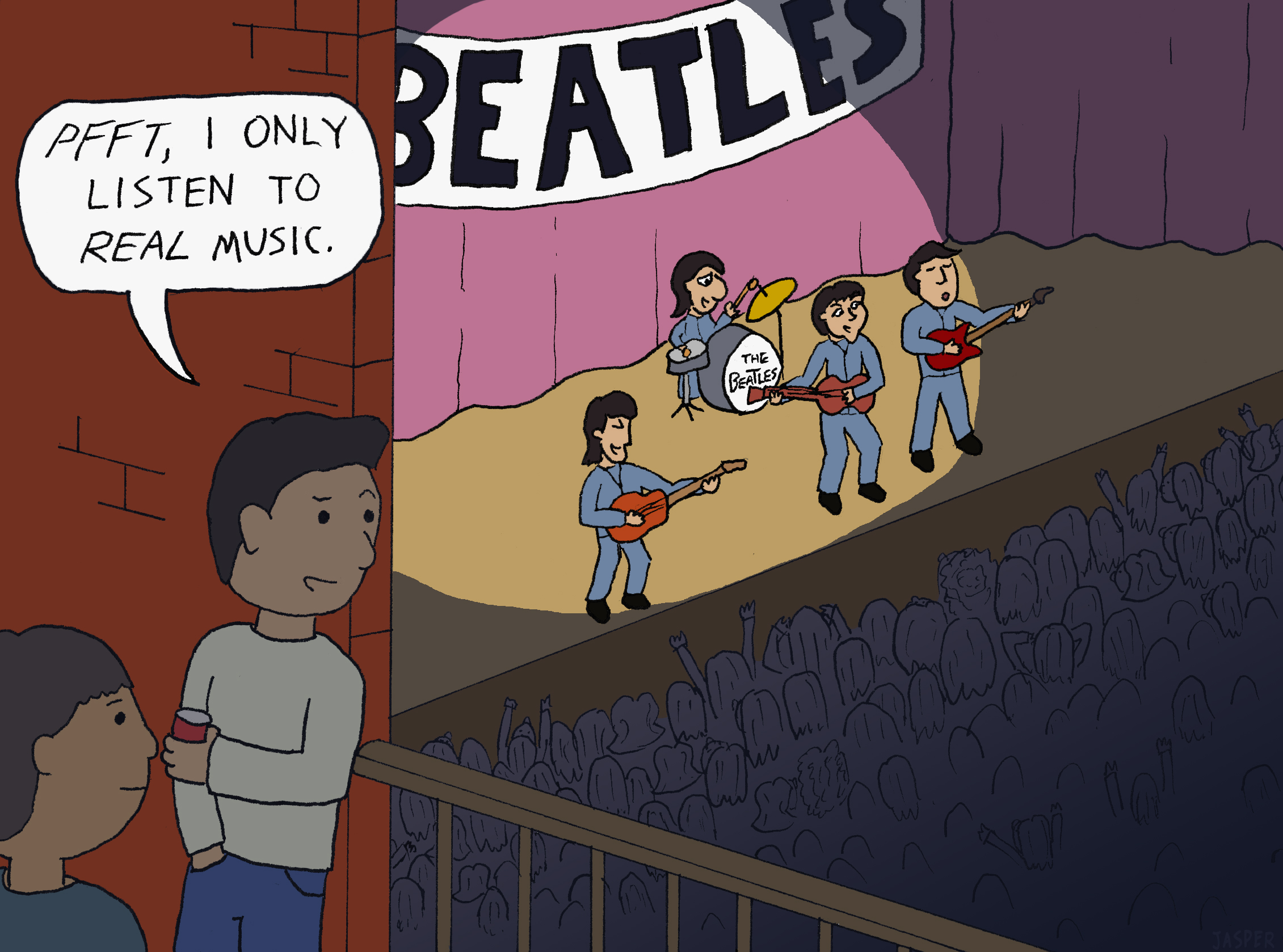Roar writer Ella Mathison discusses the trivialisation of teenage fangirls in the public discourse.
A couple of weeks ago, I went to a concert in which someone standing next to me groaned and said, “Look how many teenage girls are here, that’s not a good signâ€. She was, in fact, a teenage girl herself. While a mob of people so unbelievably enamoured with art would, under normal circumstances, seem like a testament to the artist’s talent and the camaraderie art can create, when it’s a group of teenage girls, all deference to the quality of the art goes out the window.
This is due to this narrative, as depicted throughout history, of girls being foolish, hysterical, and naive. Now, some (in privileged Western societies, such as the one I am a part of) would say that nowadays we’ve flown past that narrative. Nowadays, girls are listened to, respected, and treated with more dignity. However, the treatment of young, teenage girls’ interests and opinions is one of the most prime examples of how that hysterical and foolish narrative remains fresh in people’s minds today.Â
As a teenage girl, I’ve lived under this narrative my whole life. From listening to artists such as Taylor Swift and One Direction throughout my childhood, I was constantly told I had terrible taste in music by my peers and felt shamed by the media. I remember it baffling me as an eight to thirteen-year-old how a chart-topping, Grammy-award-winning multi-millionaire like Taylor Swift, and a record-breaking band such as One Direction, could be a reason for me to be made fun of. After attending both of their concerts, I figured that if my favourite artist and band could sell out a 50,000 seat stadium each, they had to be pretty popular. Sitting at these concerts I genuinely could not comprehend, while staring out in the black at the sea of thousands upon thousands of twinkling iPhone flashlights, how I could be ridiculed for being a fan of these musicians.
It took me a long time to understand how deeply rooted the misogyny of this was. At first, I just played along. I laughed when my peers would make fun of my music tastes, and agreed that Justin Bieber made terrible music. I’d shake my head ferociously and insist that I wasn’t “one of those girls†who listened to Katy Perry. And even when people would take a look at my iTunes library, I would insist that I knew that Taylor Swift had no talent, I just liked to listen to her songs because they were catchy.
Here I was, going so far as to say that my favourite artist in the whole world, of whose songs I knew every single lyric to by heart, was, in fact, untalented. I was so afraid of being roped in with the embarrassing images of girls screaming their brains out trying to sprint past barriers to see their favourite celebrities. Nobody wanted that kind of reputation.
Picture as many pop artists as you possibly can whose music has been given a bad reputation and deemed as “cliche†or “mainstreamâ€. It’s likely that the vast majority of artists you pictured has a large teenage girl following. This is because when a musician or artist gains this type of audience, they are discredited, as anything that large amounts of teenage girls are drawn to has to be simplistic, ordinary, and with no deeper meaning, as we tend to associate teenage girls with ignorance.
These kinds of fans are degradingly also called “hysterical,†defined by a “behaviour exhibiting overwhelming or unmanageable fear or emotional excess,†according to Merriam-Webster. This term was largely used as a clinical diagnosis for women throughout the 18th and 19th century for whenever women exhibited characteristics that, frankly, men didn’t like. The word itself comes from the Greek word “hystera,†meaning “uterusâ€. In other words, it was made especially for us women. It is understandable that this word was used to describe female ailments back then, as solely men were in charge – but the real question is: why has this term persisted, and why is it considered okay to still label these groups as such? In the wise words of the novelist Linda Grant, “Teenage girls are perceived as a mindless horde: one huge, undifferentiated emerging hormone.”
What is with this war on teenage girls? What have we done so horribly wrong to gain this perpetual reputation of foolishness? At the end of the day, it comes down to a world of systemic oppression of women and incontestable misogyny. Making the assumption that young girls are simple-minded is not only a blatant show of sexism but also a control mechanism in which to entrap girls as they begin to adopt it into their own life.
When, as a teenage girl, people are invalidating your opinions, your interests, and your intelligence, you become hopeless. You argue that you’re not like that. But instead of fighting for all girls around you, in sheer desperation to avoid these labels, you begin to argue solely for yourself. Hence the “not-like-other-girls†trope. In other words, this narrative begins to not only be upheld by nearly everyone in society, but by teenage girls themselves.
So, to all those reading who are young girls, let’s change this narrative. Be proud of your interests and stop participating in a culture that demeans you, no matter how many eye rolls you get or elitist arguments you find yourself roped into. And to those of you who aren’t teenage girls, please refer to this quintessential Harry Styles quote for any questions you may still have: “Young girls like the Beatles. You’re gonna tell me they’re not serious? How can you say young girls don’t get it? They’re our future. Our future doctors, lawyers, mothers, presidents, they kind of keep the world going.â€

















